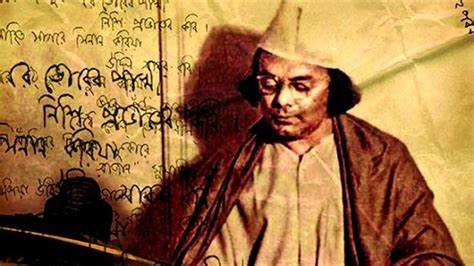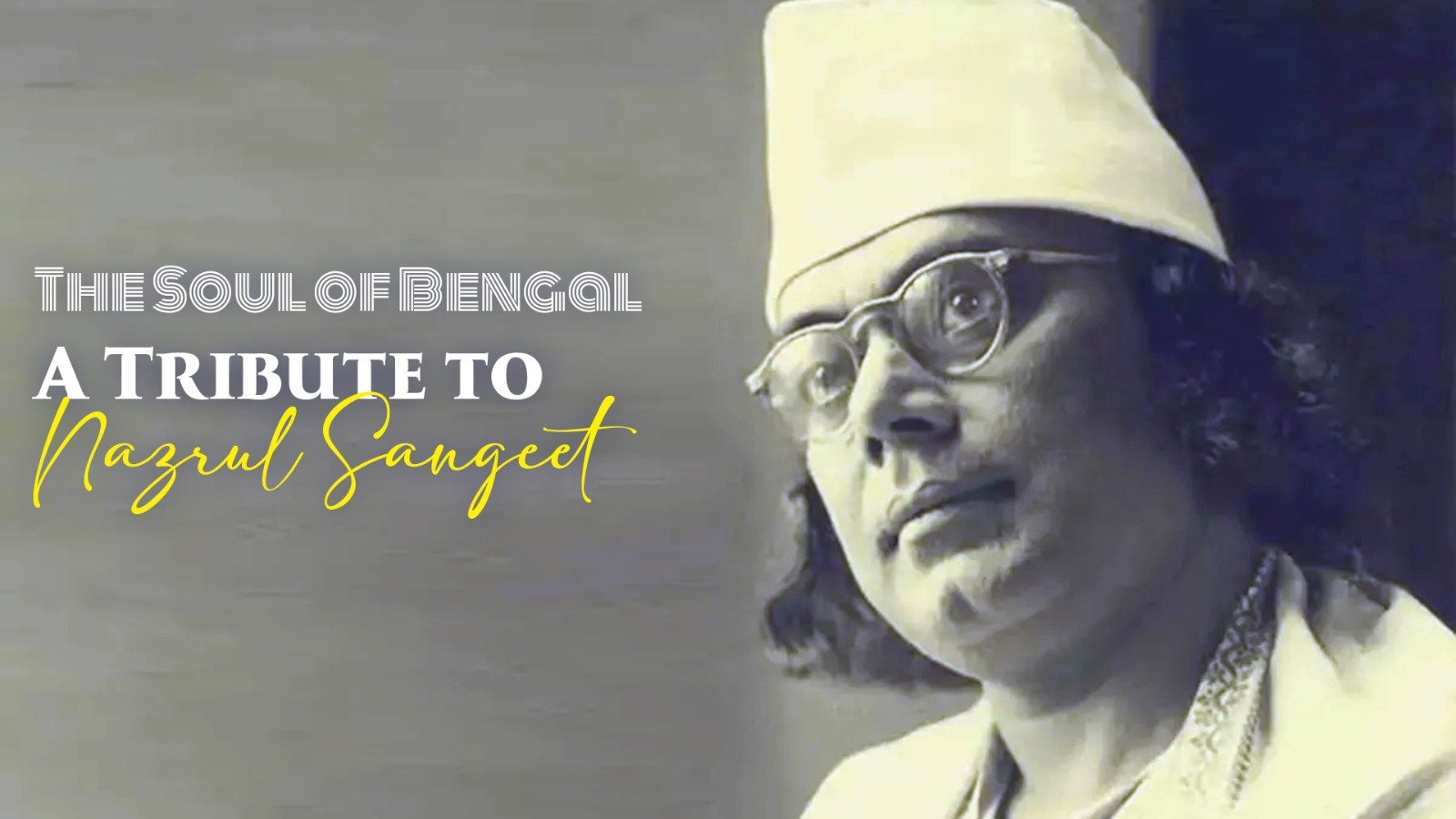Kazi Nazrul Islam was a poet, musician, and revolutionary, best known as the national poet of Bangladesh. His impressively large collection of poetry and music with themes, such as religion, spiritualism, and humanity has inspired many in the past and continues to inspire modern-day activists and revolutionists. A collection of 4,000 songs, which are extremely popular in India and Bangladesh, is known as Nazrul Sangeet of Nazrul Geeti (Music of Nazrul). Nazrul took active part in the ‘Indian Independence Movement’ after serving the British Indian Army during the ‘First World War.’ For his tremendous contribution towards the field of music, literature, and art, Kazi Nazrul Islam was honoured by the Government of India with the prestigious ‘Padma Bhushan Award’ in 1960.Kazi Nazrul Islam was born on May 24, 1899, in Churulia, Paschim Bardhaman district, Bengal Presidency. He was born into a Muslim Taluqdar family to Zahida Khatun and her husband, Kazi Faqeer Ahmed, who worked as an ‘Imam’ (Head of the Masjid) and caretaker at a local mosque. Nazrul received his basic education from a Maktab, which was run by a mosque, and then attended a Madrasa run by a Dargah. His education involved subjects like theology, Islamic philosophy, Quran, and Hadith. Nazrul lost his father when he was just 10 years old. To support his family, a young Nazrul started working as the new caretaker of the mosque, where his father used to work. He also worked as the muezzin at the mosque. Nazrul then joined his Uncle Fazle Karim’s travelling theatrical group. He used the opportunity to learn acting. He also started writing songs and poetry for plays, which eventually exposed him to Sanskrit and Bengali literature, along with sacred Hindu texts. He also started composing interesting folk plays for his theatrical group. Nazrul left the theatrical group in 1910 to attend ‘Searsole Raj High School’ in Raniganj, Asansol. At the school, he was influenced by one of his teachers named Nibaran Chandra Ghatak, who was a Jugantar activist. Nazrul was then enrolled at ‘Mathrun High English School,’ where he studied under poet Kumudranjan Mallik, who was also the headmaster. Unfortunately, Nazrul could not pay for his education so he had to quit his studies, before joining a group of folk artists called ‘kaviyals.’ He then took up various part-time jobs, before joining ‘Darirampur School’ in 1914. There he studied Sanskrit, Bengali, Persian, and Arabic literature as well as Hindustani classical music. When he turned 18 in 1917, Nazrul joined the British Indian Army. Ironically, Nazrul’s decision to join the military helped him become a poet later in his life as he started reading a number of Bengali and Persian poems during his time in the military. He read the works of prominent writers like Sarat Chandra Chattopadhyay and Rabindranath Tagore. As far as Persian poems are concerned, Nazrul was exposed to the works of Omar Khayyam, Hafez, and Rumi. The works of these great men inspired him to publish his own works as he came up with his first prose and poetry in 1919. While his prose was titled as ‘Baunduler Atmakahini,’ his poem was called ‘Mukti.’ Nazrul left the military in 1920 and then joined the ‘Bengali Muslim Literary Society.’ He published his maiden novel titled ‘Bandhan-hara’ soon after joining the society and then came up with his first collection of poems as well. In 1922, Nazrul wrote a revolutionary Bengali poem titled ‘Bidrohi,’ which is considered as his most popular work. He continued writing many such revolutionary poems, which received commercial as well as critical success. On August 12, 1922, he started his own magazine called ‘Dhumketu,’ which served as the perfect platform for his revolutionary works.Kazi Nazrul Islam was always an omnist as he often expressed his wish of experiencing religious harmony in India. He criticized religious fanaticism and blamed humans and not religions for religious violence in India. Nazrul started exploring religious themes after the death of his mother and sons. This was reflected in his works as he started composing more Islamic devotional songs. He also composed Hindu devotional songs, such as ‘bhajans’ and ‘kirtans.’ He also merged Hindu and Islamic values and often explored the philosophy of Hinduism and Islam.
Kazi Nazrul Islam
Jesica Sen
||
Post On > May 29 2024 ||







I've read a few just right stuff here. Certainly worth bookmarking for revisiting. I wonder how a lot attempt you place to create suchh a fantastic informative website. http://Boyarka-Inform.com/
Leave a reply